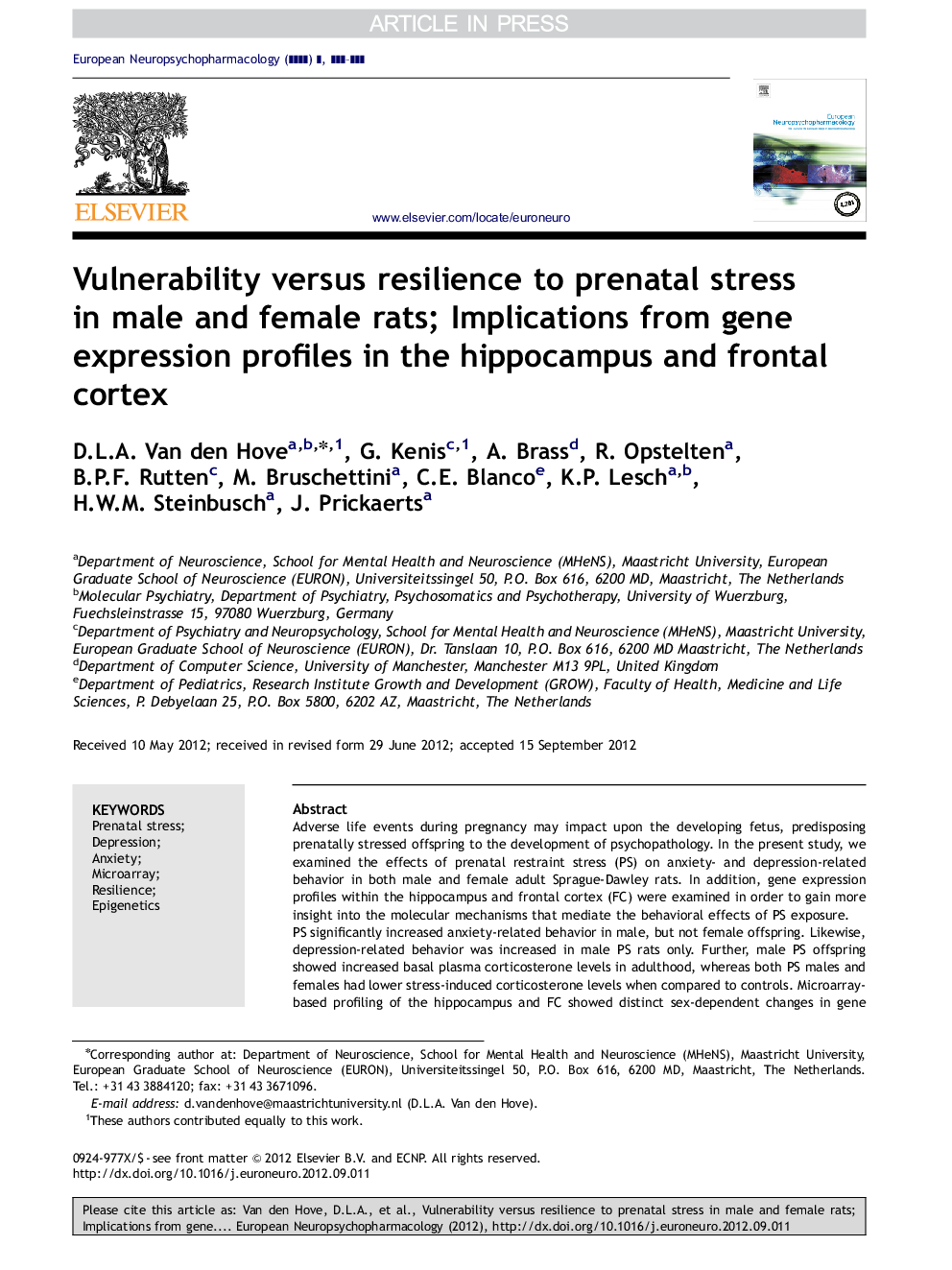| Article ID | Journal | Published Year | Pages | File Type |
|---|---|---|---|---|
| 10299177 | European Neuropsychopharmacology | 2013 | 21 Pages |
Abstract
PS significantly increased anxiety-related behavior in male, but not female offspring. Likewise, depression-related behavior was increased in male PS rats only. Further, male PS offspring showed increased basal plasma corticosterone levels in adulthood, whereas both PS males and females had lower stress-induced corticosterone levels when compared to controls. Microarray-based profiling of the hippocampus and FC showed distinct sex-dependent changes in gene expression after PS. Biological processes and/or signal transduction cascades affected by PS included glutamatergic and GABAergic neurotransmission, mitogen-activated protein kinase (MAPK) signaling, neurotrophic factor signaling, phosphodiesterase (PDE)/ cyclic nucleotide signaling, glycogen synthase kinase 3 (GSK3) signaling, and insulin signaling. Further, the data indicated that epigenetic regulation is affected differentially in male and female PS offspring. These sex-specific alterations may, at least in part, explain the behavioral differences observed between both sexes, i.e. relative vulnerability versus resilience to PS in male versus female rats, respectively. These data reveal novel potential targets for antidepressant and mood stabilizing drug treatments including PDE inhibitors and histone deacetylase (HDAC) inhibitors.
Related Topics
Life Sciences
Neuroscience
Biological Psychiatry
Authors
D.L.A. Van den Hove, G. Kenis, A. Brass, R. Opstelten, B.P.F. Rutten, M. Bruschettini, C.E. Blanco, K.P. Lesch, H.W.M. Steinbusch, J. Prickaerts,
